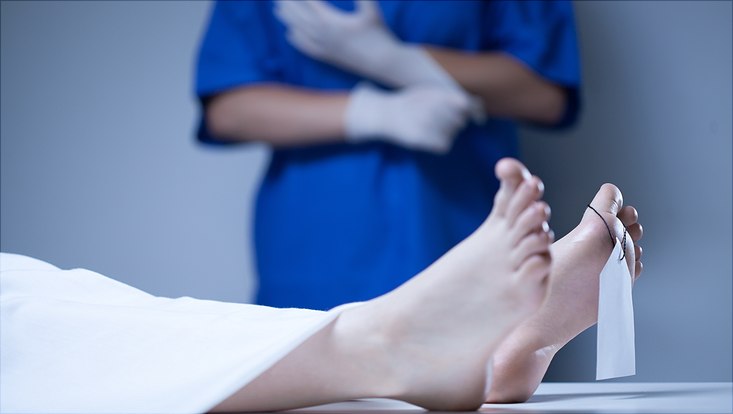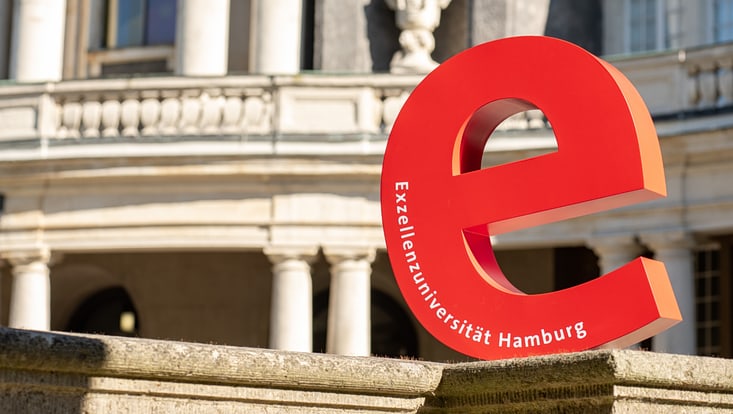Study into handling the bodies of coronavirus victims: reassuring results for relatives and funeral directorsHow contagious are deceased persons with the coronavirus?
7 June 2021, by Christina Krätzig

Photo: Katarzyna Bialasiewicz
Since the coronavirus took hold in Germany, those who come into contact with the deceased have had many questions. Are the bodies of the victims contagious? How significant is the danger? Can we protect ourselves? Dr. med. Antonia Fitzek of the University Medical Center Hamburg-Eppendorf has answers.
Every other day, Antonia Fitzek, Julia Schädler and other employees of the Institute of Legal Medicine at the University Medical Center Hamburg-Eppendorf visit crematoriums in Hamburg to carry out a second inquest of bodies scheduled for cremation. “When we spoke to crematorium employees or funeral professionals at churches over the past year, we noticed a great deal of anxiety,” she said. Why? “People in those professions come into physical contact with the deceased, but they have no medical training, so they do not know how to protect themselves from infectious diseases. They were largely forgotten in discussions about handling the pandemic.”

Together with her colleagues, the junior doctor decided to conduct a systematic study into the potential risk of contagion from the deceased. In the spring of 2020, virtually no comparable analyses had been carried out in Europe. While medical professionals already assumed that the coronavirus spread through droplets, there was still uncertainty as to whether touching the skin of the deceased, body bags or coffins might pose a danger of infection.
Samples taken from the bodies of the dead were to provide insight into the risk of infection
The study was launched in the summer of 2020 using funding granted to Universität Hamburg within the scope of the Excellence Strategy of the Federal and State Governments. A team of forensic pathologists examined 33 deceased persons from Hamburg in whose nose and throat samples PCR tests had detected the coronavirus. Fitzek explained: “We also took five skin samples from each body, for example, from the mouth area, where it seems likely that virus particles might have accumulated. But we also examined their shoulders and arms: areas that the funeral professionals touch frequently.”
Many of the skin samples contained virus fragments, but the researchers were unable to cultivate the viruses in the laboratory, i.e., cause them to reproduce. Successful reproduction would have suggested a risk of infection. “None of the skin samples contained virus material that we were able to cultivate. This shows that touching skin is highly unlikely to be contagious. Professionals can handle the dead without anxiety, provided that they wear suitable PPE.”
Blood tests detect recovery
Antonia Fitzek and Julia Schädler went one step further for their study. They took blood samples from employees of cemeteries and funeral homes to find out how many of them had already recovered from a SARS-CoV-2 infection—quite possibly without being aware of it. The researchers also asked them about their worries and hopes.
The survey showed that nearly half of the 56 study participants did not feel sufficiently informed at the end of last year. While there was plenty of PPE available, nearly a third of respondents stated that they did not wear them consistently at work. No reasons were given. Some wished for external controls.
Many people suspected that they had already recovered from an undiagnosed infection with the coronavirus. The analysis of their blood samples showed a different result, however: “Only two percent of those examined already had antibodies in their blood. This corresponds to the average among the general population,” Fitzek told us. The result supported her conclusion that the risk of infection from handling the bodies of coronavirus victims correctly and professionally is not nearly as high as feared.
The results may change how the dead are handled—by relatives as well as professionals
The funeral professionals were very relieved to learn about the results of the study. Its insights may benefit relatives of the deceased, too: at the moment, they have to observe very strict rules. They are not allowed to go near the deceased; in most cases, they are not even allowed to see them again. “That’s a very sad state of affairs. Saying goodbye at the coffin is an important part of the grieving process for many,” Fitzek said. “In my opinion, our study results show that the current rules can be reconsidered.”
Dr. med. Antonia Fitzek received €10,000 in funding from the Universität Hamburg—University of Excellence initiative. The ‘Mehr Weitblick nach der Coronavirus-Krise’ (a broader perspective after the coronavirus crisis) fund is financed through the Excellence Strategy of the Federal and State Governments. For the detailed study results, see this publication. Additional publications are in preparation.


